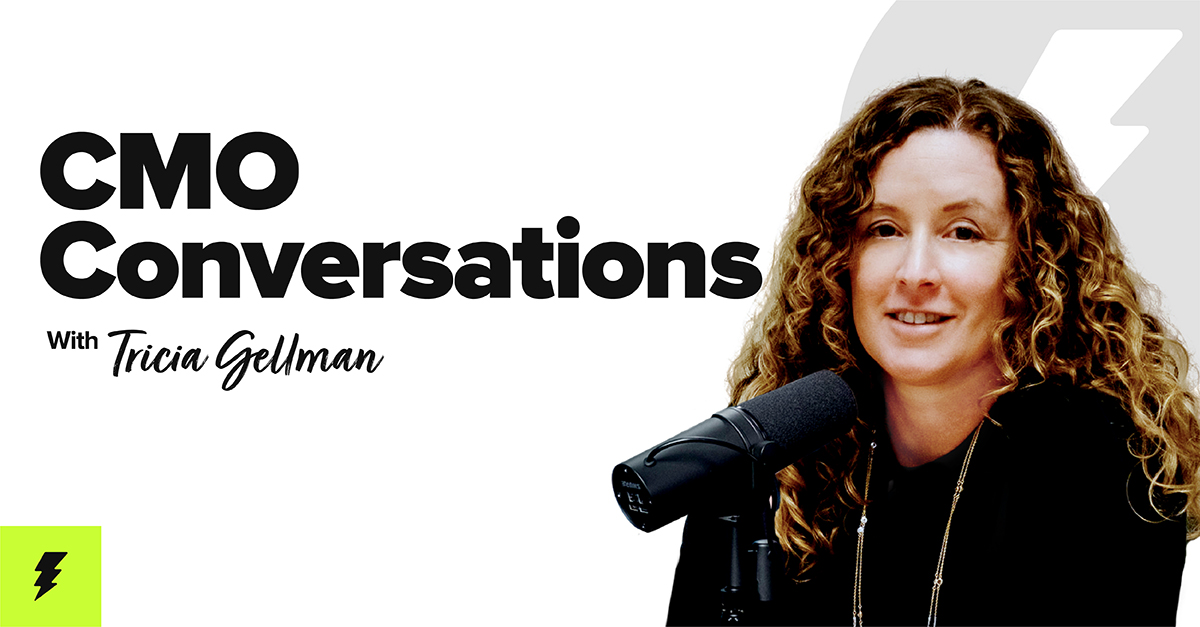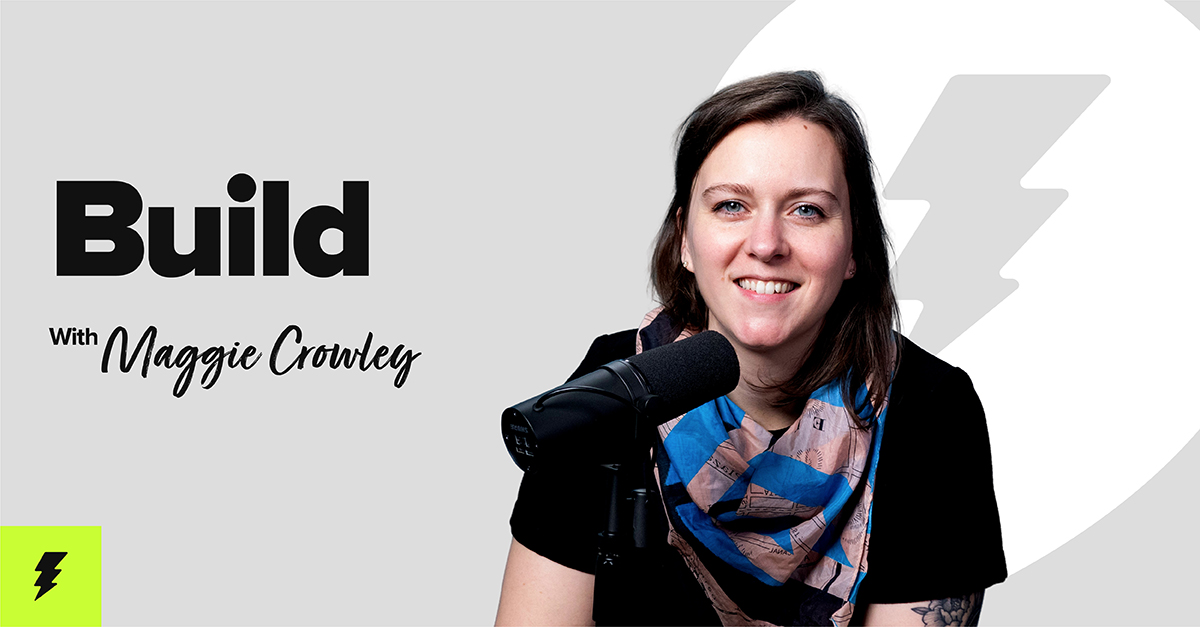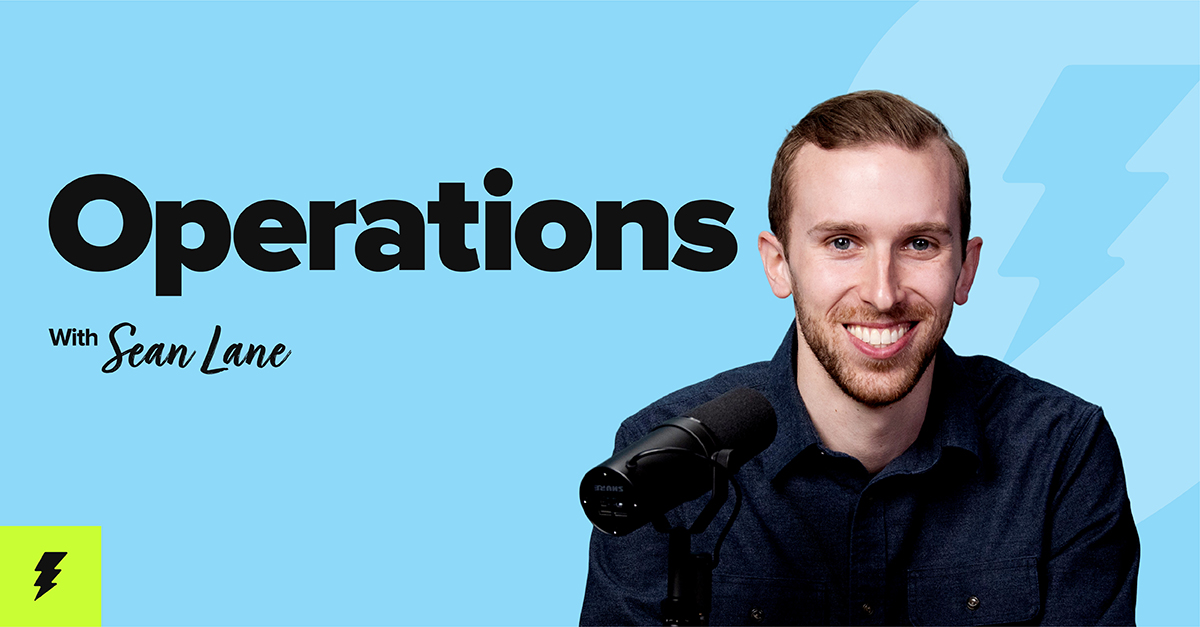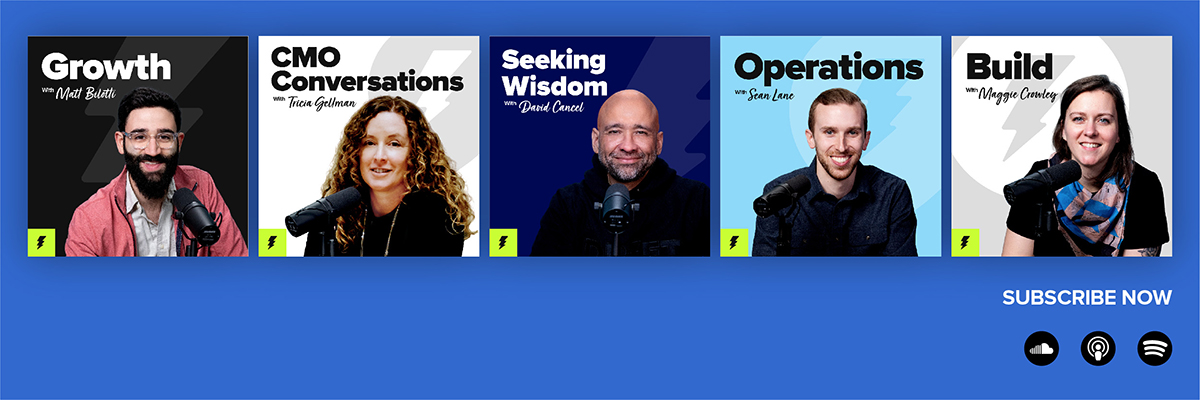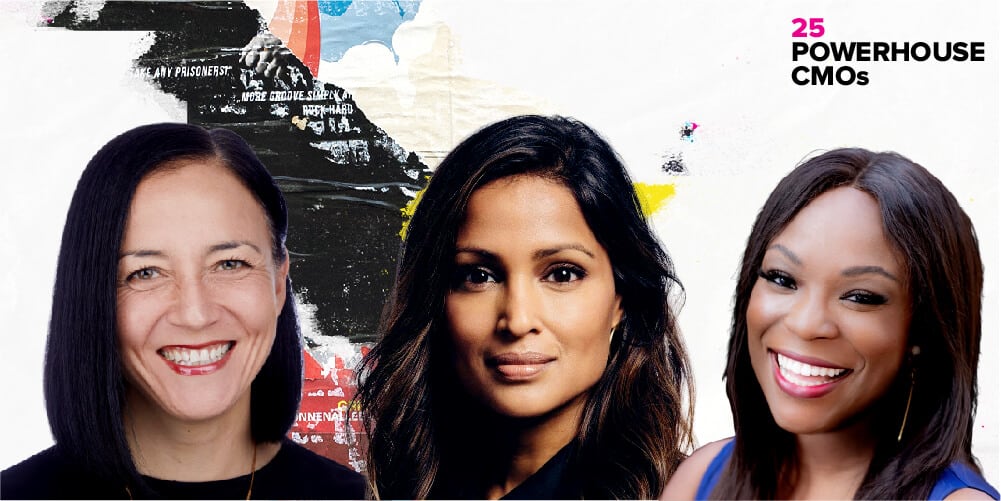Podcasts are a gold mine for learning. And lucky for me, podcasts – and all the fun behind-the-scenes work that goes along with them – are literally part of my job at Drift. I’m learning all the time.
Right now we have five podcasts (soon to be six, but you didn’t hear it from me 👀). After publishing that many episodes for several years, we have hundreds of hours of interviews with tech innovators who are at the top of their game. Everything you wanted to learn about being a marketing leader, building the next great product, scaling a company, or unlocking your next level of growth is just an episode away.
And when it comes to International Women’s Day – a day that celebrates the social, economic, cultural, and political achievements of women – you’d better believe I’m going into the Drift podcast archives to serve you with some serious learnings from some seriously talented women we’ve been fortunate enough to have on our shows over the last year.
These 19 women have founded companies and fought for a seat at the table, built brands and created categories, and accelerated revenue and scaled through hypergrowth. And their achievements deserve to be celebrated.
Now – roll the tape 🎧
I wish I could feature all of the amazing women we’ve had on our podcasts over the years. But like I said – hundreds of hours of interviews 🤯 So I narrowed it down to some of our most popular episodes. Click here if you want to dig into all of Drift’s Podcasts.
CMO Conversations With Tricia Gellman
CMO Conversations takes you inside the mind of today’s top chief marketing officers. It’s hosted by our own CMO, Tricia Gellman, who interviews guests into everything from what it takes to become a CMO to how people navigate the challenges of a role that’s always changing.
Here are six interviews you should check out 👇
Vidya Peters
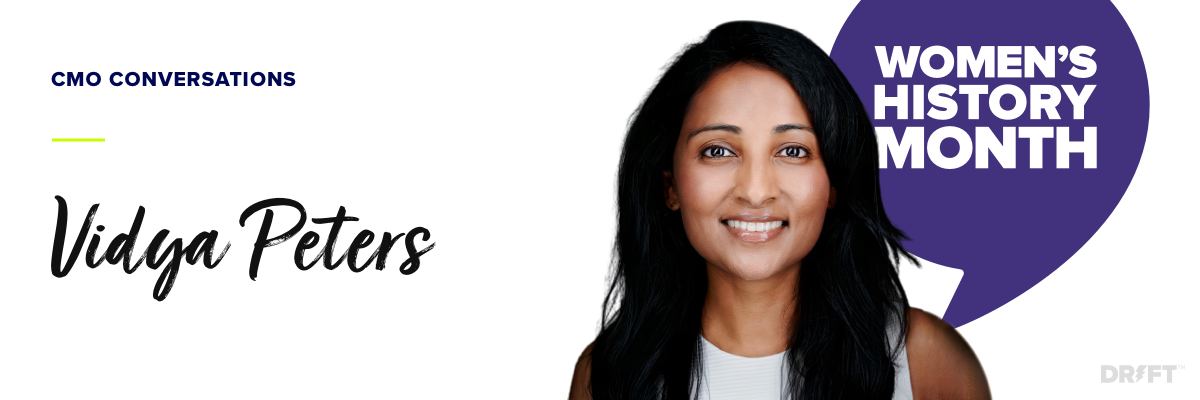
Who she is: Chief Marketing Officer at Marqeta
What she’s all about: Before Vidya took up the CMO role at Marqeta, she headed up marketing teams at Intuit and MuleSoft. Her background in consulting, engineering, and product management has given her a unique perspective and has shaped the way she approaches marketing – and her leadership role.
Episodes she appeared on: Feedback, Failure & The Marketing Jungle Gym and The Most Credible Form Of Marketing Any Company Can Do
Her mic drop moment 🎤
“We all have performance reviews. We all get ratings. And it can be a challenging time, to give the feedback, and receive feedback. One of the things I love to do is whenever I get my opportunity areas; I publish it.
“I share it with my teams, and I tell them these are my top three areas of opportunity. I want to share this with you because I want you to help me. When I do this, call me out, and I want you to help me overcome these.
“I want us to be objective about the things we all have to learn, and this acknowledgment that we all have opportunity areas, and we all have learning to do. Why not disempower those things from having this emotional burden and just saying you know what? We will work on it together.”
Carol Carpenter
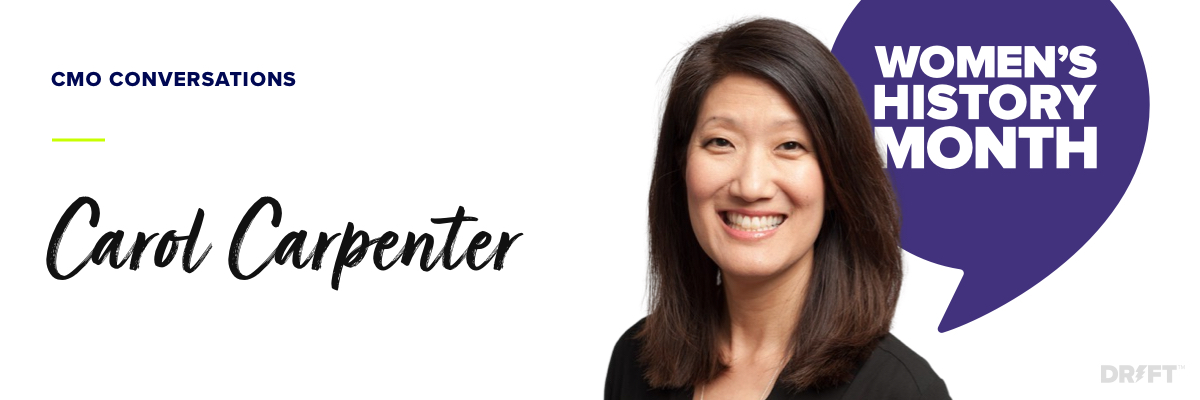
Who she is: Chief Marketing Officer at VMware
What she’s all about: Carol’s bio is a career progression marketers dream about. She has managed global teams at Apple, Trend Micro, and Google, headed up product teams, and was CEO at ElasticBox (which she later went on to sell). She’s now leading VMware’s digital transformation as the software giant’s CMO.
Episodes she appeared on: What Being A CEO Taught Carol Carpenter and
Her mic drop moment 🎤
“There’s something pretty unique that happens when you’re a general manager, or a CEO, or somebody who has to actually report a number every few weeks with the commit debt stretch. You become laser-focused on what really will move the needle.
“I like to think of myself as a holistic marketer. Somebody who thinks first about the business and the customers, and then about what are all the awesome activities we need to do to drive to have that kind of business impact.
“I have to admit, I think when you have a number on your back, and I tell people who want to go into marketing, earlier in your career, if you have the opportunity to be in sales or in some kind of frontline customer-facing role, do it because you will gain such an appreciation for what customers really need and what salespeople who, in at least B2B, what salespeople really need.”
Katharine Mobley
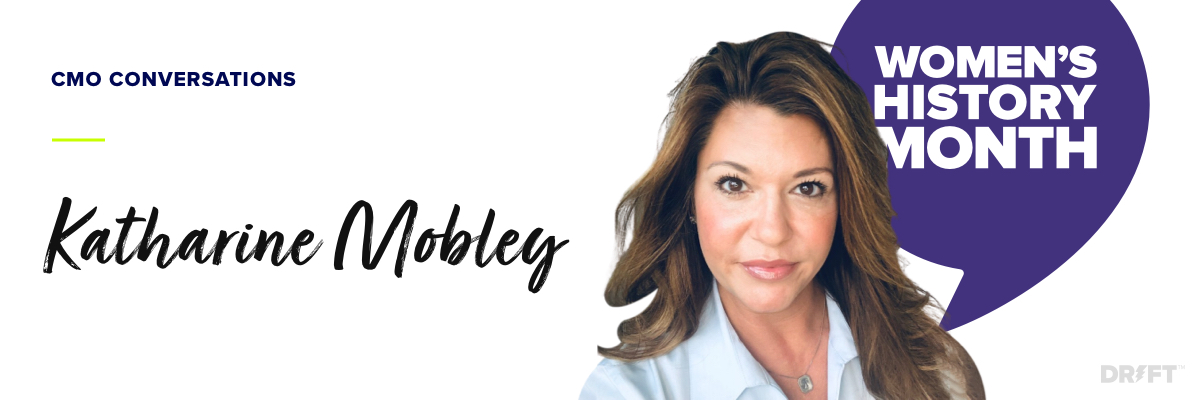
Who she is: Head of Global Marketing at First Advantage
What she’s all about: Katharine’s data-driven approach to driving revenue has taken her from working at WeCareCard and Crescerance to heading up First Advantage’s global marketing team. Her leadership transformed the brand and tripled the company’s valuation before it sold last year.
Episode she appeared on: What It Means To Be A Revenue-Driven CMO
Her mic drop moment 🎤
“I don’t think that fluffy metrics really work anymore.
“I think you do have to be able to say I delivered this to the revenue bottom line, or cost savings, or whatever your KPIs are. For me, we really needed a lift in pipeline. I wanted to be measured on what converts to actual revenue. I went through where sales deals were stalling and looked at how can I build content to make that process better, or is it because the market has changed and we have more buyers at the table.
“I just think that it’s imperative that, moving forward, all those marketers that have always been measured on fluff are going to go away. You really have to be measured on the bottom line and your impact.”
Brandi Starr
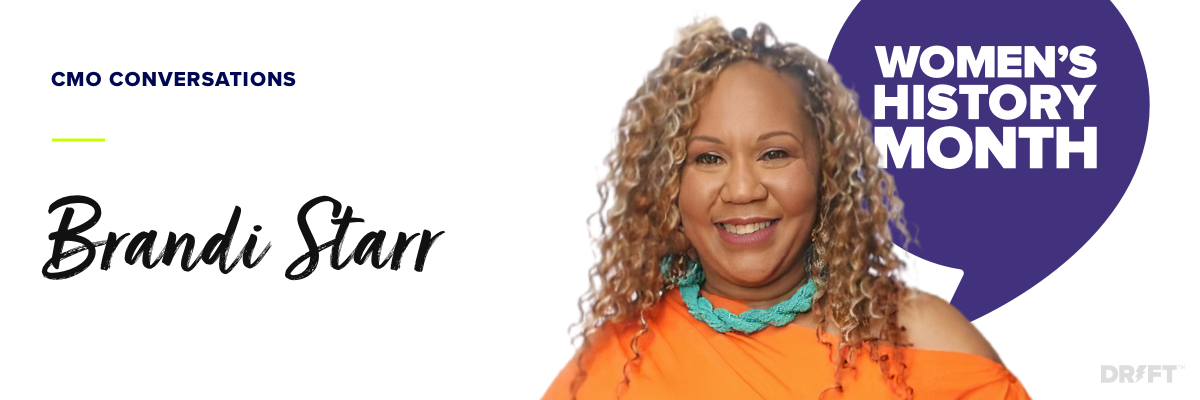
Who she is: Chief Operations Officer and Managing Consultant at Tegrita
What she’s all about: Brandi has been in the markers game so long, she remembers when the motto was “if someone sneezed, they were a lead.” Now she’s the COO at Tegrita, on a mission to change the way marketers align themselves and to prove that metrics can bring the whole revenue team together.
Episode she appeared on: Measuring What Matters
Her mic drop moment 🎤
“Everybody who touches revenue has an impact.
“You are going to have someone in the channel team who is driving interactions with the channel, and you are going to have someone in the content team who is creating content and, if they know that this is important, they’re going to prioritize content that drives new deals.
“When everybody has a seat at the table to be a part of what matters, then everybody starts focusing on metrics that actually show that they have an impact in the business. If everyone focuses on that, it positively impacts the outcome, which is revenue and growth.”
Nancy Coleman
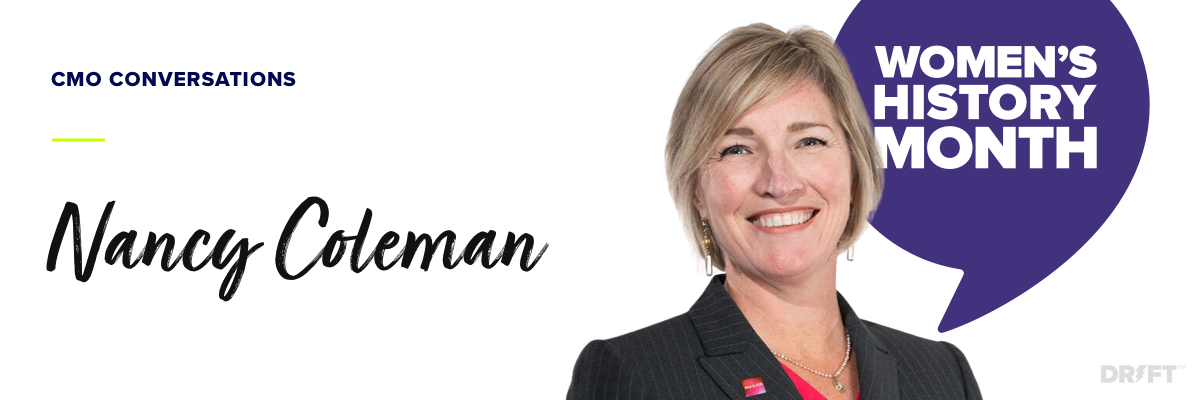
Who she is: Chief Marketing and Communications Officer at Maxar Technologies
What she’s all about: Nancy’s work at Maxar has been anchored in a belief that a product tells a story…because Maxar is using its own product to tell breaking news stories. During her time at Maxar, she has helped launch the Maxar News Bureau. It’s a partnership program with top-tier media organizations that uses satellite imagery. One news story in particular resulted in 2,000+ slaves being freed from Southeast Asia’s commercial fishing industry, action from the U.S. government, and a Pulitzer Prize.
Episode she appeared on: The Tech CMO Who Started A News Bureau and Taking A Stance On Social Issues
Her mic drop moment 🎤
“We sit at a unique intersection where we provide information to governments in order to make decisions about critical changes that are happening across the earth, but we come at it from a commercial point of view where all the imagery that we collect is available in a public archive that someone could go look at like a library and look at the changes that have happened over time.
“And so, although we serve a lot of classified missions, the imagery that we collect is inherently unclassified and therefore carries with it a high level of trust because our information can be verified. Our information is so accurate and the custody of the information from the time it comes down from the spacecraft all the way to the ground is verified so much so that it’s used in the Hague in criminal court proceedings against war crimes, because it carries with it that seal of trust and transparency and accuracy.”
Sydney Sloan
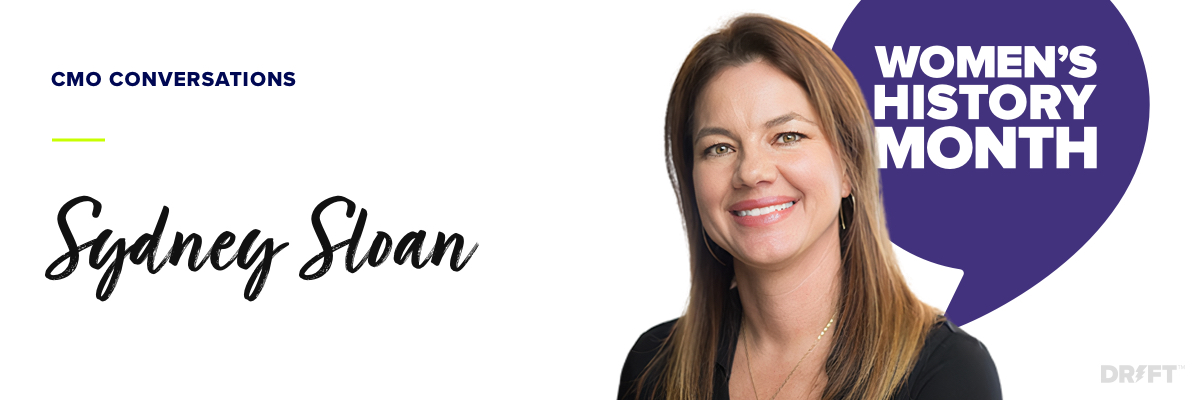
Who she is: Chief Marketing Officer at SalesLoft
What she’s all about: Before leading her team at SalesLoft, Sydney powered marketing efforts at Adobe, Jive, and Alfresco. Her forward-thinking style of marketing puts the customer at the center of everything she does. This way, she can better understand the challenges customers are facing (especially in the first 90 days) – and where marketing can provide value.
Episode she appeared on: How Marketing Can Get Closer To The Customer
Her mic drop moment 🎤
“I believe sales tech is where martech was seven years ago.
“You’re now able to apply all this innovation that’s happening in the technology landscape to the problems that sellers are facing. There’s a digital transformation, marketing transformation, sales transformation thing that’s going on.
“What I love is the marketing in sales transformation is starting to happen more and more as marketers and marketing tech companies are realizing that you have to connect the dot with sales because it’s the closest path to revenue.
“That’s what we want to show – that impact to revenue.”
Build With Maggie Crowley
Build – hosted by Drift’s Senior Director of Product Management, Maggie Crowley – takes a deep dive into everything from product management and design to engineering, interviewing pioneers like Atlassian and Pluralsight.
Here are three interviews with some of the women leading the way in product 👇
Katie (Womersley) Wilde
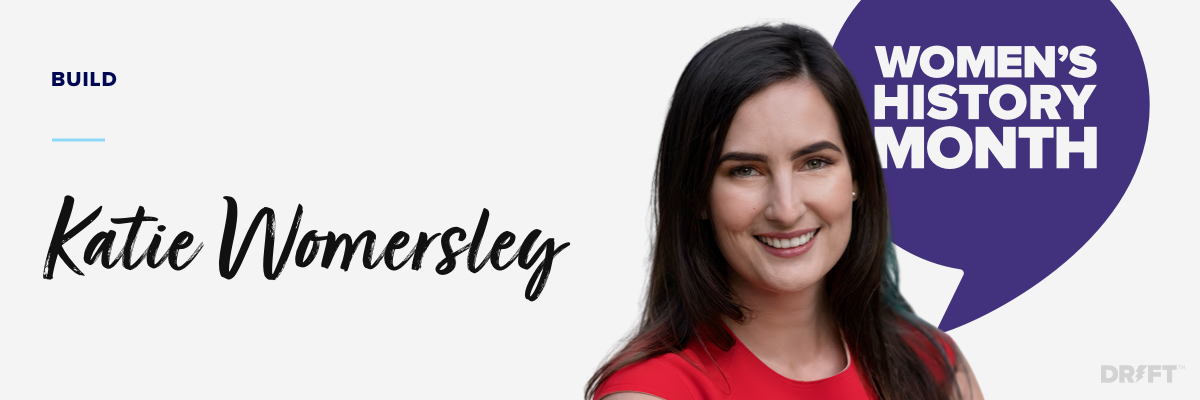
Who she is: VP of Engineering at Buffer
What she’s all about: Katie heads up the company’s engineering team, and now she’s shining a light on what it means for team leaders to be the first line of defense when it comes to mental health at work.
Episode she appeared on: Buffer’s Katie Womersley On Managers And Mental Health
Her mic drop moment 🎤
“Something that’s become increasingly true as we have evolved our understanding of management as an industry from this tailor-istic model, is trying to get the most out of somebody – trying to monitor their output – through to understanding that in the knowledge economy, it’s not about how fast somebody can work.
“You’re not managing a factory worker anymore in the knowledge economy. You are trying to get somebody to engage with their full mind, with their full creativity.
“When that is the task of a manager, when it’s about engagement and not just the rate at which they can perform an operation, it becomes important to address the whole person, and that includes their mental health and their mental wellbeing.”
Janna Bastow
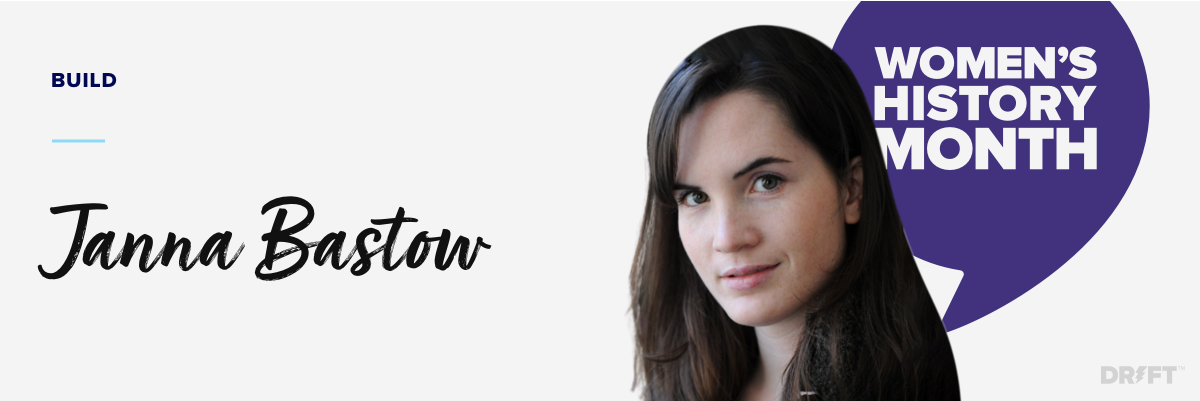
Who she is: CEO and Co-Founder at ProdPad
What she’s all about: Janna spent years trying to build the perfect product roadmap and find the right tool to get it done. When she couldn’t, she took matters into her own hands and created ProdPad – a tool that manages roadmaps and product backlog.
Episode she appeared on: The Right Way To Roadmap With ProdPad CEO & Co-Founder Janna Bastow
Her mic drop moment 🎤
“The big thing you can be doing to help your marketing team is to separate your hard launch from your soft launch. There’s nothing worse, and there’s nothing riskier than trying to line up an expensive marketing campaign – planning out your marketing expenditure, wasting people’s time on building out all these assets – which may or may not be used on the day that the thing actually launches.
“The reality is, building products is an unknown. You do not know how long it’s going to take.
“You are actually safer saying, you know what? The day we think it’s ready, that’s the day we’re going to soft launch it. We will put it behind a feature flag; we’ll make it available to some BETA customers. Now, if marketing wants to take that and they need 6 days to plan a marketing campaign – great, they can launch in 6 days time. If they need 6 weeks, great. If they need 6 months, cool. They’ve got all the time in the world.
“Plus, they’ll have all the materials. They can get videos of customers using it. They can get real testimonials. They don’t have to worry about whether it’s going to be live by that day because it already exists.”
Deidre Paknad
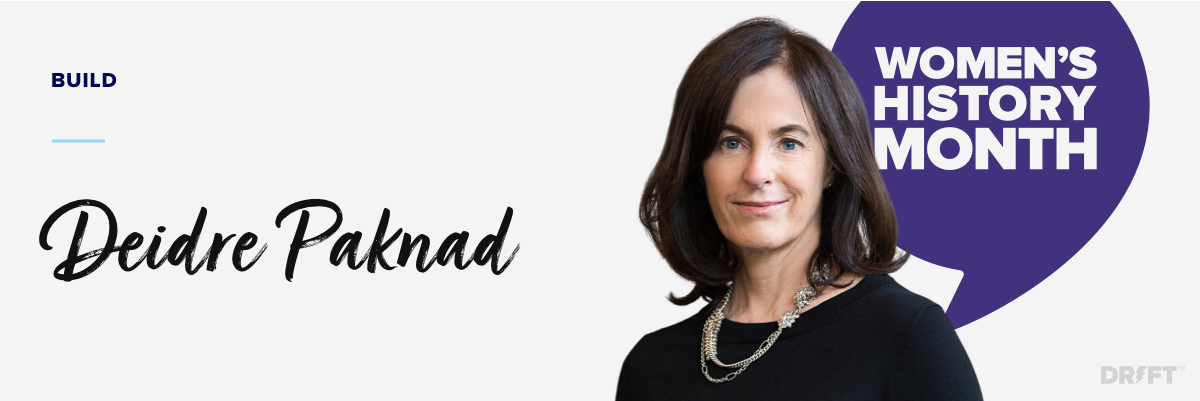
Who she is: CEO and Co-Founder at WorkBoard
What she’s all about: Deidre spent years seeing companies like PSS Systems, IBM, and Certus Software spending days getting their teams on the same page. Then, she created WorkBoard to help teams organize their OKRs – and now businesses like Cisco, Microsoft, Zuora, and Workday use it to power their goals.
Episode she appeared on: The OKR Episode (With WorkBoard’s Deidre Paknad)
Her mic drop moment 🎤
“Setting OKRs with a group of people who need to come together to make something happen. That might be a pod or a squad. It may be a go-to-market team that includes the revenue lead, the success lead, the marketing lead. And they’re together deciding – well, what are we trying to accomplish on this product or on this launch? And then, how are we defining success?
“It’s not thinking about OKRs as if they must sit at an individual owner or they must sit at a functional or hierarchical team. That is really powerful, and we see a real performance difference in dynamic teams.
“If we really bring the right people together, who are highly dependent on each other and they have shared understanding, they just achieve more collectively.”
Bonus! Maggie Crowley
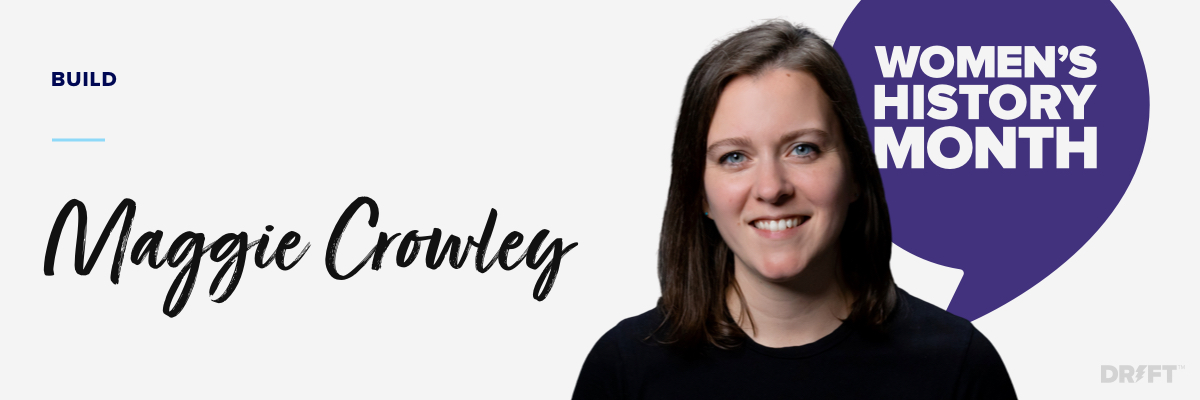
Who she is: Senior Director of Product Management at Drift
What she’s all about: By now you already know Maggie as the host of Build. But what you might not know is that Maggie is a former Olympian (!) turned Harvard MBA. Before coming to Drift, she worked in product management at BevSpot and TripAdvisor. Not only does Maggie interview some incredible product leaders, her solo episodes (like the one below) are full of great learnings for anyone looking to level up.
(Solo) episode she appeared on: Maggie’s Top 5 Product Lessons for 2021
Her mic drop moment 🎤
“My last big lesson that I’m taking into 2021 is that we are never too good for those basics. We need to go through them every time. Just like how an elite athlete never stops practicing technique and getting reps in, we don’t wanna stop sweating the details because we’ve been doing this for a long time. Maybe we’re gonna get faster at those steps.
“I hope I get faster at them, but we don’t get to skip them.
“Plus, I think it’s disingenuous to lead a team but then consider yourself, for some reason, exempt from the same standards that you want them to have.”
Operations With Sean Lane
Sean Lane, Drift’s Director of Operations, interviews leaders in operations on the show (aptly named, Operations) to take you under the hood of companies like Salesforce, Amazon, and Okta to find out what it truly takes to scale through hypergrowth.
Let’s hear from four of those leaders 👇
Emmanuelle Skala
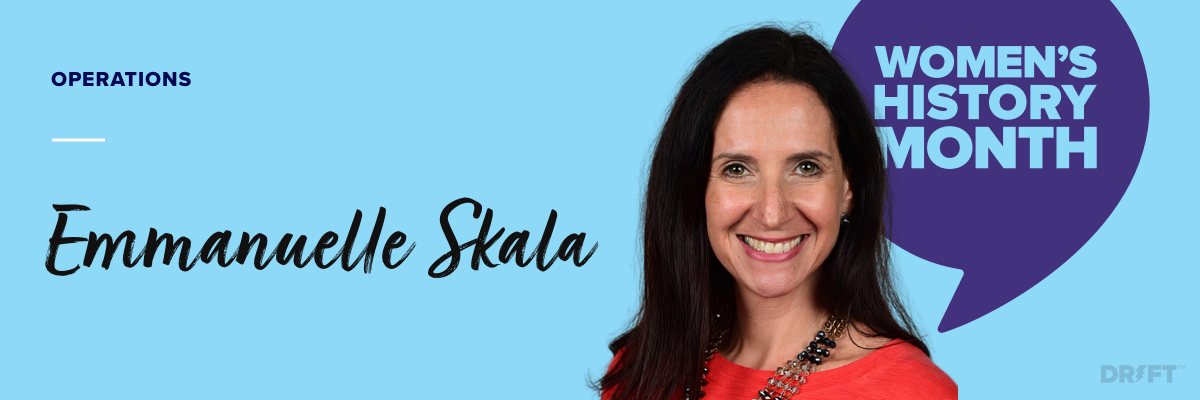
Who she is: SVP of Customer Success at Toast
What she’s all about: Emmanuelle worked in different roles from operations to sales before arriving at her current role SVP of Customer Success at Toast. She’s the leading force that’s turning Toast’s business model from reactive to proactive and automating processes to make it the leading tool in restaurant technology.
Episode she appeared on: How Toast Uses Data To Drive Hospitable Moments With Emmanuelle Skala
Her mic drop moment 🎤
“Don’t be afraid along the journey to try something different. Even if it’s lateral moves. Even if it’s a pivot. Even if it feels like a backward move. You are always going to learn something.
“Think about your career, instead of a career journey, think of it as a learning journey. Can I learn something from this, even if it physically feels like a step backward?
“If you can learn something, you are on a journey, and you are on a path towards something bigger.”
Rachel Haley
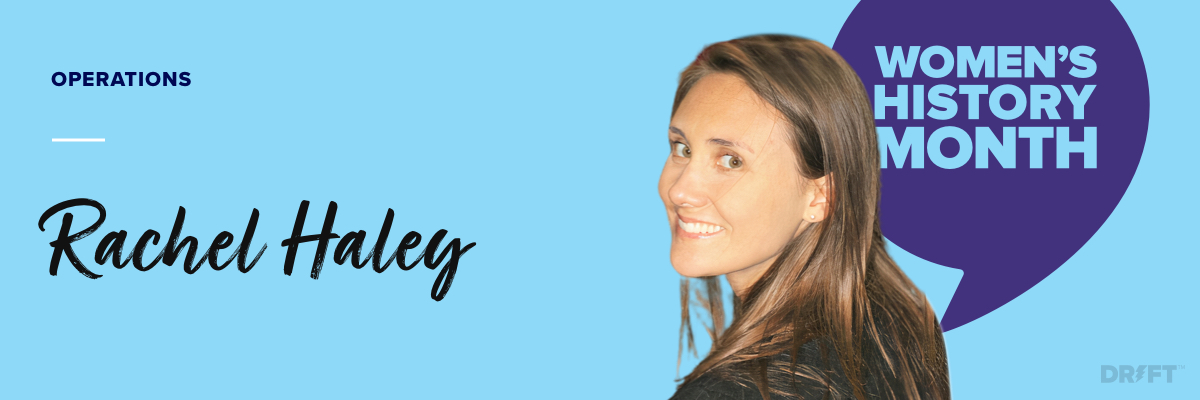
Who she is: CEO of Clarus Designs
What she’s all about: Before co-founding Clarus Designs, Rachel spent two and a half years heading up Snowflake’s sales team as Senior Director of Sales Operations, one of the most successful tech growth stories in recent memory. Through the company’s crazy growth spurt, she realized how important it is to be proactive instead of reactive when investing in a team.
Episode she appeared on: The Art & Science Of Snowflake’s Sales Capacity Planning With Rachel Haley.
Her mic drop moment 🎤
“We used to approach hiring as more reactive.
“We would have a project or a timeline or a need, and then we would put the rec out. It was more like… hey! Now we realize after we’ve had X number of fire drills with regard to business intelligence or board reporting, we really need someone who can own this full-time.
“It was partly my job. Partly my VPs job. It was always a piecemeal process. And then we realized we needed someone to run this whole pillar.
“Shifting that perspective first: always be recruiting, always be thinking about people you can bring onto your team. At the pace Snowflake was growing, if we didn’t have a role that minute, we would’ve definitely had one within the quarter or within six months. Given how people in today’s market prefer to transition into jobs, having that buffer in between is common.
“So, switch from a reactive mode to a proactive mode and always have a mindset of recruiting.”
Rosalyn Santa Elena

Who she is: Head of Revenue Operations at Clari
What she’s all about: Before heading up Clari’s revenue operations team, Rosalyn worked at Signifyd and DataStax. Now, she advises teams on running successful QBRs and forecasts by focusing on clear pathways and making sure everyone is working towards the same goal.
Episode she appeared on: How Clari Runs Effective QBRs With Rosalyn Santa Elena
Her mic drop moment 🎤
“Every company I’ve joined, people say we have sales stages and we have forecast categories, but every company does it a little bit differently. And I’ve seen within companies reps doing it differently. And managers doing it differently.
“It’s an ops and sales leadership responsibility to make sure we have really clear definitions around, when do you open an opportunity? When is the right time to say this is qualified? How does it progress through the deal cycle?
“Having very clear sales stages where everybody is on board, everybody knows if it’s in the second stage that A, B, and C has been done, and X, Y, and Z need to get done. Making those very simple and well-defined, and making sure everybody sticks to them when you drive adoption, obviously helps a lot in the forecast.”
Melanie Fellay
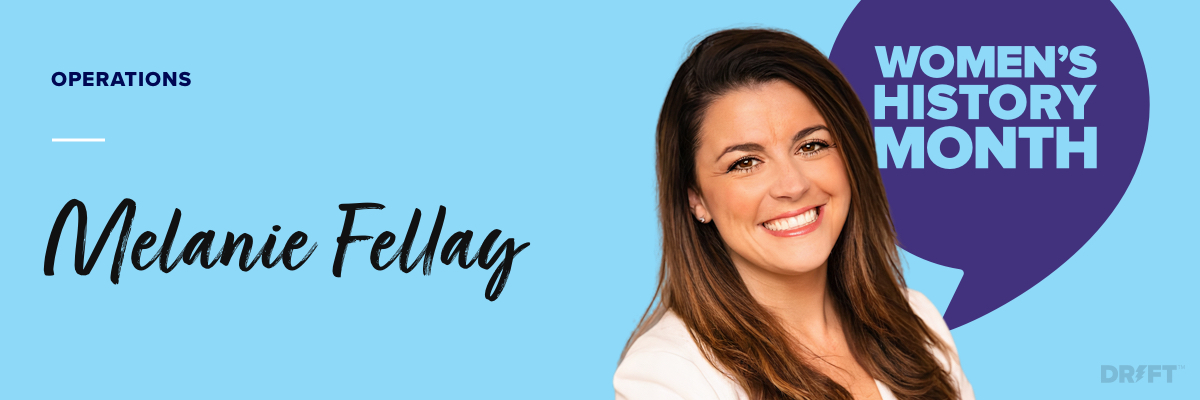
Who she is: CEO and Co-Founder at Spekit.
What she’s all about: When Melanie’s former boss told her they were getting rid of Salesforce, it led to her co-founding the company she runs today – Spekit. She’s now showing teams the importance of measuring the ROI of different enablement tools and the difference between change management and change enablement.
Episode she appeared on: The Intersection Of Sales Operations And Sales Enablement
Her mic drop moment 🎤
“When I talk to customers that are first implementing a solution, it’s like, you’re not going to see ROI on that tool at implementation. ROI comes at optimization; once you are going in and refining what you’ve built out.
“Every time you refine your sales process and get smarter about your ICP and what works and what increases your close rates. You’re going to start tracking new kinds of information on your customers. These tools are constantly going to be evolving as you get smarter about your business and as you get smarter at using these tools.
“It’s not just thinking about what is the cost going to be at implementation of getting buy-in and training, but it’s more so, as we think of our broader strategy, what is our change enablement strategy? How will that constant change affect their ability to focus on their numbers on a day-to-day basis?”
Growth With Matt Bilotti
Drift’s Product Lead Matt Bilotti looks at the nuts and bolts of what it takes to get a company to grow. Every other Wednesday on Growth, he talks to a different growth expert about specific tactics, strategies, and approaches about how they’ve run and optimized experiments to make a difference at their companies.
Let’s hear five of those stories 👇
Keya Patel
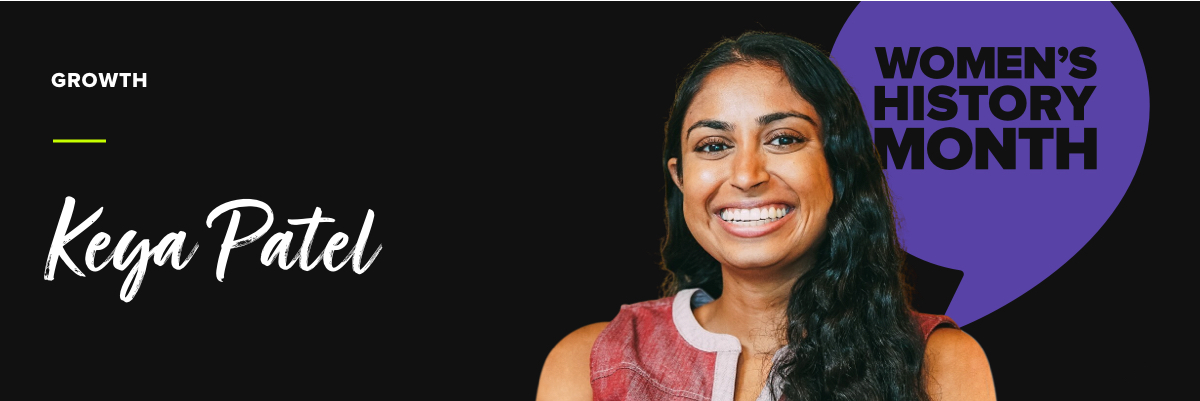
Who she is: Director of Product Management, Growth at Headspace
What she’s all about: Before leading the product team at Headspace, Keya cut her teeth at Dropbox. Now, she’s focused on growing her team while balancing Headspace’s revenue numbers and what’s best for their members.
Episode she appeared on: Balancing A Company’s Social Mission With Growth Tactics
Her mic drop moment 🎤
“I’m balancing thinking about this vision to improve the health and happiness of the world every single day, and balancing that with growth, which is bringing in revenue for the company.
“The way I like to think about it and the way I’ve heard our CEO Rich Pierson talk about it in the past is that the two – vision and growth – have to go hand in hand. They’re so intertwined at a company like Headspace and a lot of other social enterprise organizations, whereby having revenue and fuelling growth, you’re able to essentially bring your mission to that next level and vice versa.
If you lean more into the mission sometimes, it can help with revenue as well.”
Maura Church
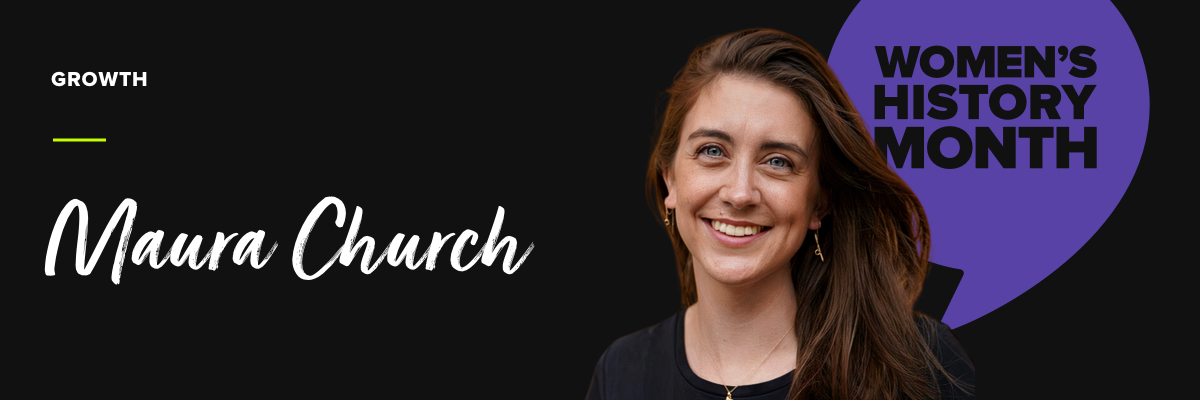
Who she is: Director of Data Science at Patreon
What she’s all about: During her time at Patreon, Maura (another Google alum) has learned that getting deep into experimentation and metric design pays off. One of her superpowers? Adding data science resources to a team – and knowing how to leverage them best.
Episode she appeared on: How To Leverage Data Science To Enable Your Org To Run Effective Experiments
Her mic drop moment 🎤
“It can be very tempting to design the perfect metric and spend all your time thinking, if I have the perfect goal, then I’ll build everything perfectly, and I won’t make any mistakes.
“I think often, good enough is good enough, especially in startups. You’ll know if you don’t have a good metric because you’ll start looking at it, and you’ll start building things, and it won’t move. Or it’ll move in the opposite way, and you’ll think, hey, that’s not tracking what you need it to track.
“I try to push my team and our product team when we’re developing metrics to put a line in the sand somewhere, start with some definition of a metric. You can always iterate and make it better. You’re never going to have a perfect metric, and it might hinder you from making progress on your goals.”
Laura Borghesi
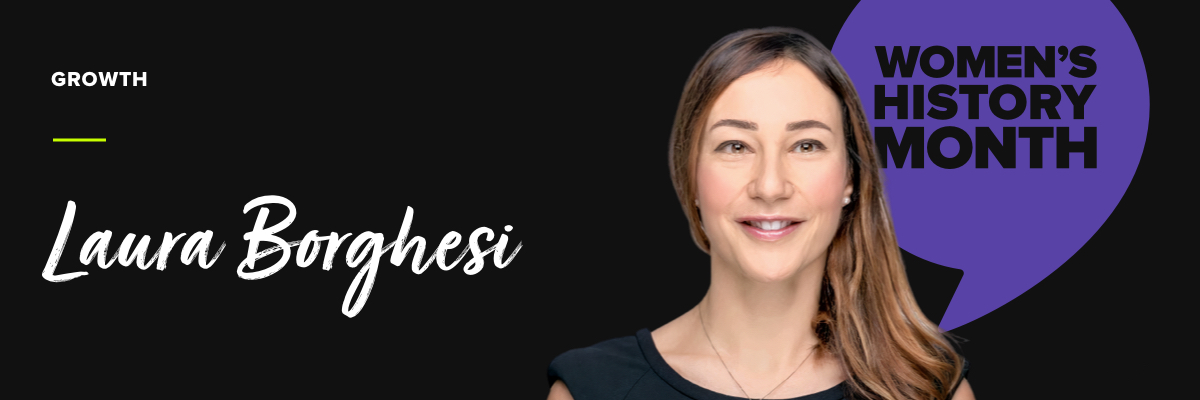
Who she is: VP of Growth at Gympass
What she’s all about: Laura has worked for some mega names like MongoDB, Google, and Stripe. Now, she is pushing a product-led growth model as the VP of Growth at Gympass, and she shared what it actually looks like when a model is successful.
Episode she appeared on: What Is The Process Of Transitioning To A Product-Led Growth Model Actually Like?
Her mic drop moment 🎤
“I advise a lot of startups that have small teams. What I always like to tell them is that growth is a mindset first.
“It’s not that you need a specific team or a specific platform or tooling or automation in place to start. It’s very much about looking at what you already have and finding those pockets of potential that you can then explore.”
Maria Cuasay
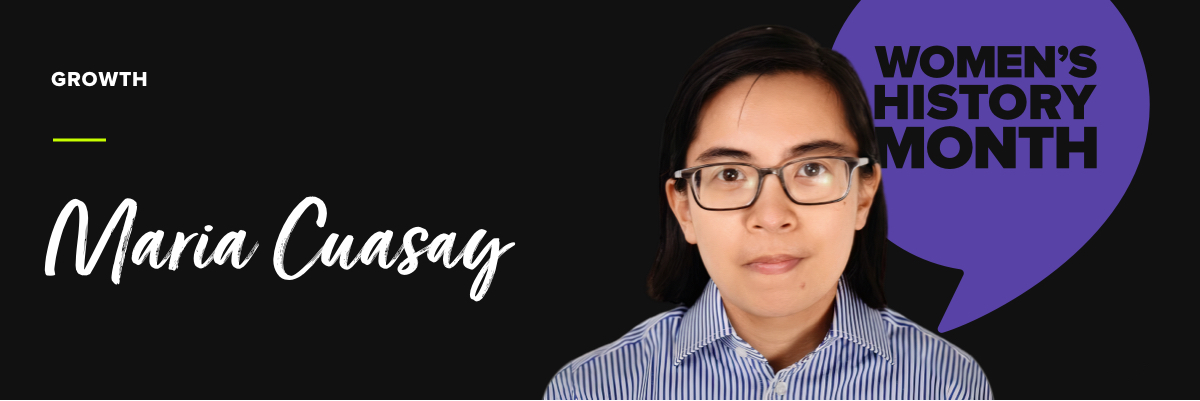
Who she is: Senior Product Manager at Sprout
What she’s all about: If you’ve ever used a free ride from Lyft or cashed in on an Opencare referral, it’s thanks to Maria. Now the Senior Product Manager at Sprout, Maria has built referral systems and knows the secrets behind what works and what it takes to build your own successful system.
Episode she appeared on: What a Great Referral System Looks Like And How To Build One
Her mic drop moment 🎤
“To me, referrals productizes the word of mouth experience that’s already happening in real life.
“I think growth teams and product teams should observe how people refer, when they refer, who they refer, and you build a product around it. What I don’t think referrals is, is just another marketing tool or another lever that you can pull to increase the number of new users that you get on a weekly or monthly basis.
“No, it’s really a product. To build a really good referrals program and scale it, you need to have a really good understanding of the context in which people refer, and build the product around it.”
Rachel Barge
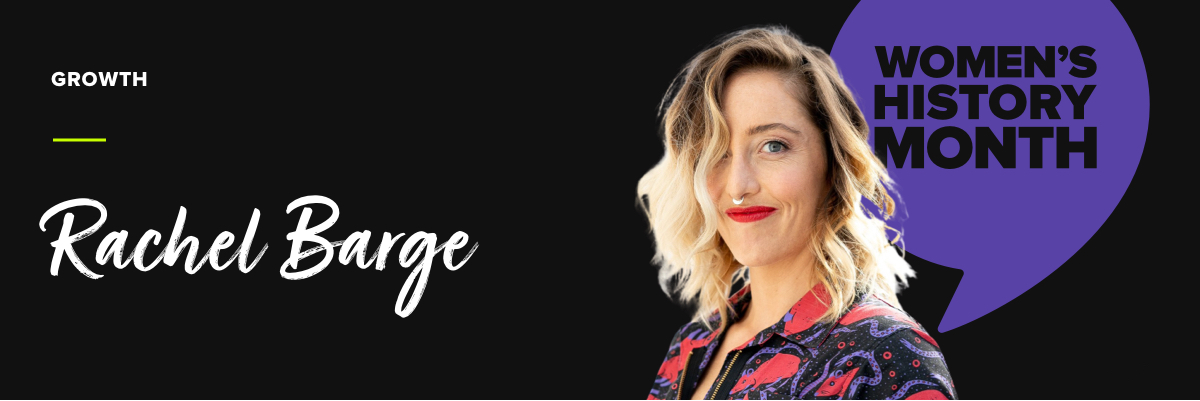
Who she is: Founder and Growth Marketer at Leap Grow
What she’s all about: Before founding Leap Grow, Rachel headed up growth at companies like Wild Earth Inc and Shameless Pets. She’s a firm believer that great documentation matters for anyone in a growth role, and it can be a gamechanger at every level for you and your team.
Episode she appeared on: Why You Should Write Things Down…Yes, Really
Her mic drop moment 🎤
“Documentation and writing things down – it’s not the goal. It’s a tool that you use to get towards the goal. And so you should never being doing it for the sake of doing it. You should never be doing it as a performative act. This is not kindergarten. You don’t have a kindergarten teacher. It’s not a homework assignment. If you have that relationship to it, it will never be meaningful to you. It will only be meaningful to you if it provides utility to your work and your life.
One aspect of the utility it can provide to you that it’s actually armor. It’s a weapon that I use. And when I document what I do and what my team strategy is, I’m creating a defensible zone of what we work on and I’m actively pushing against requests that we work on other things, and I’m saying ‘no, no – this is what we’re doing, and this is why, and don’t ask me to do other stuff because this is the most important stuff.’”





